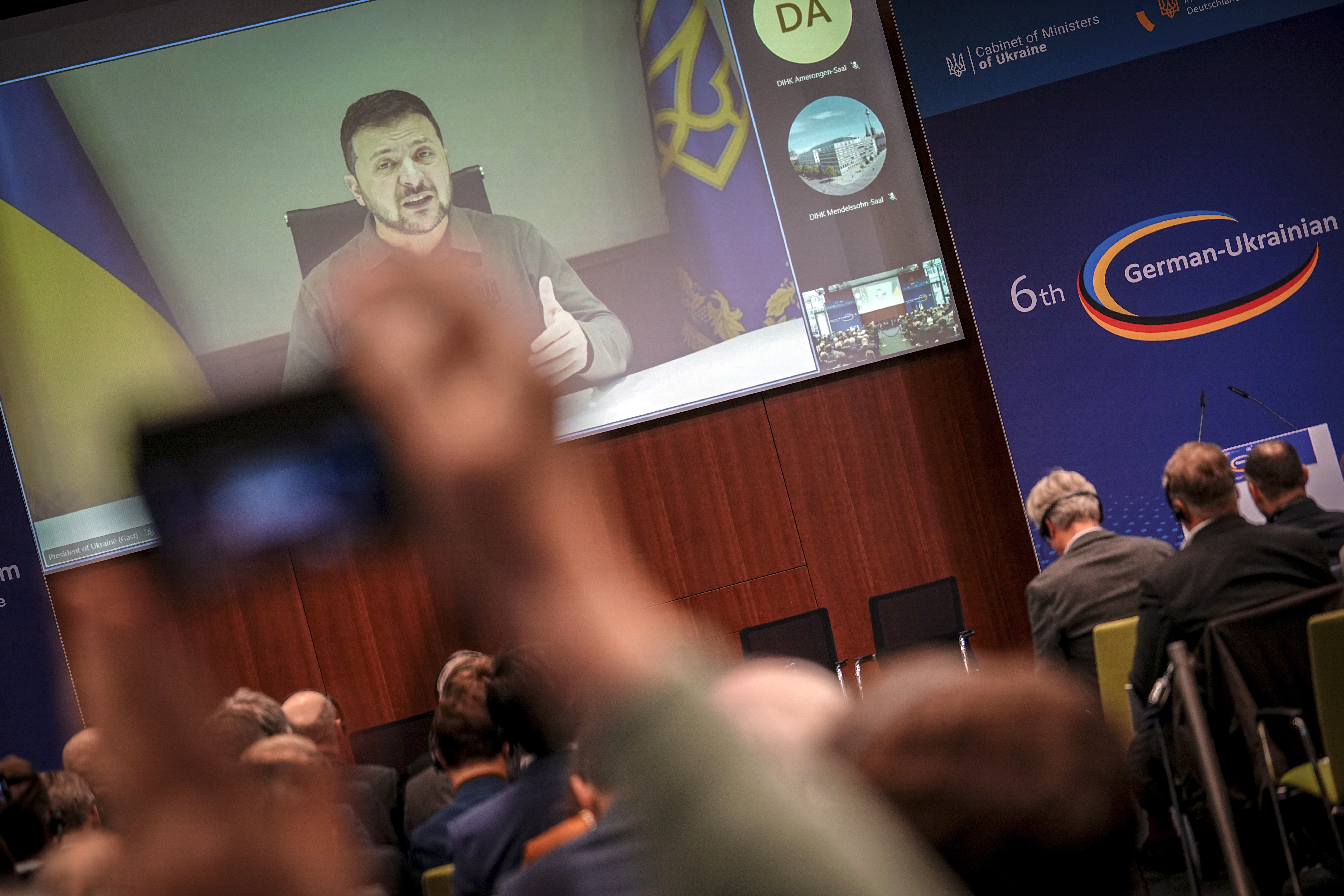BRUSSELS (AP) – Ukrainian President Volodymyr Zelenskyy had his videoconference address to the European Union summit pre-slotted for the opening session, immediately afterward, EU leaders switched off and went to the order of the day — the Israel-Hamas war. They didn’t come back to the issue of Russia’s war in Ukraine again before Friday’s closing day of the summit.
After dominating summit after summit since February 24, 2022, Zelenskyy will now find it challenging to get all the attention and the political, economic and military aid that Ukraine wants.
The shift may extend beyond Europe, too, since the new US House Speaker Mike Johnson has shown little interest in providing additional money from Congress to support Ukraine, shifting its focus on the war in the Middle East.
Not only have the geopolitics in general shifted, some of the EU politics in particular are no longer as kind to Zelenskyy.
“Ukraine is one of the most corrupt countries in the world,” new Slovak Prime Minister Robert Fico said when he assessed the summit on his Facebook page on Friday. After the summit, he added: “we are ready to help, but not militarily, because I do not believe in a military solution of this conflict in Ukraine.” Zelenskyy wants a military victory ahead of peace.
Slovakia is a nation of just 5.5 million people, dwarfed by nations like Germany and France in a bloc of almost 450 million. But Fico’s threats of denying military aid must be seen as more than just bluster. That’s because the EU gives veto rights to members on most money issues affecting Ukraine.
Fico’s counterpart from neighbouring Hungary, Viktor Orbán, has been leveraging the threat of vetos for years. And he also poured cold water on Zelenskyy on Friday.
Orbán said in his weekly interview on state radio that the EU’s strategy for assisting Ukraine in its war has “failed,” and signalled that he may not be willing to approve an EU proposal that would provide more financial assistance to Kyiv.
“The Ukrainians are not going to win on the battlefield, the Russians are not going to lose on the battlefield, and there’s no way that the Russian president will be defeated in Moscow in the chaos of a lost war,” Orbán said.
Moscow is certainly pushing more funds into the war effort. Russian Finance Minister Anton Siluanov told lawmakers in Moscow that nearly a third of government spending next year will go into defence for a total of about EUR109 billion, noting that the amount is significantly higher compared to previous years.
After reclaiming some ground during a counteroffensive that began in June, Ukraine forces failed to break through Russia’s multi-echeloned defences to achieve their goal of cutting a land link to the Crimean Peninsula they crave. Offensive operations are now expected to slow down as the winter sets in. All this despite billions in support from Europe and the United States.
With Ukraine funding in jeopardy in the US Congress, Zelenskyy is hoping Europe’s financial lifeline stays open.
By the end of the year, EU leaders have to approve a four-year EUR50-billion-euro package for Ukraine to provide budget support, promote investment and help with reconstruction — and here the veto powers of member states come into play. There is also a four-year EUR20-billion military and security package in the pipeline.
Orbán said that he was unwilling to move forward on financing to Ukraine that aimed to help it win the war militarily, a strategy he said was no longer tenable.
“I was forced to clearly and directly say that the strategy that those in Brussels adopted and brought us into has failed,” he said. “Whatever we do, before we spend the money, there has to be a clear strategy,” he said Friday.
That stance has irked a large majority of EU nations that see Ukraine as a bulwark for the kind of democracy they want to see across the globe.







